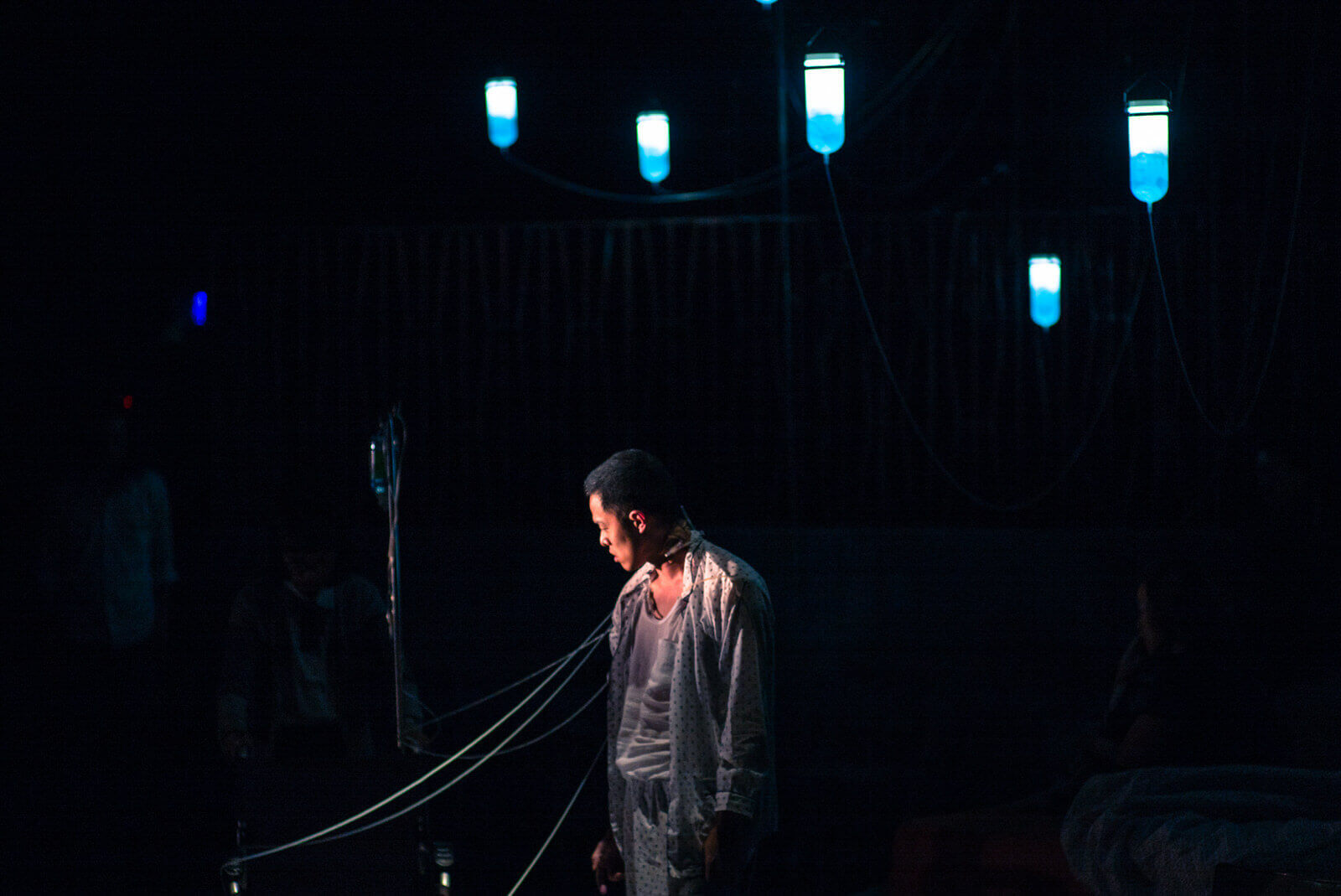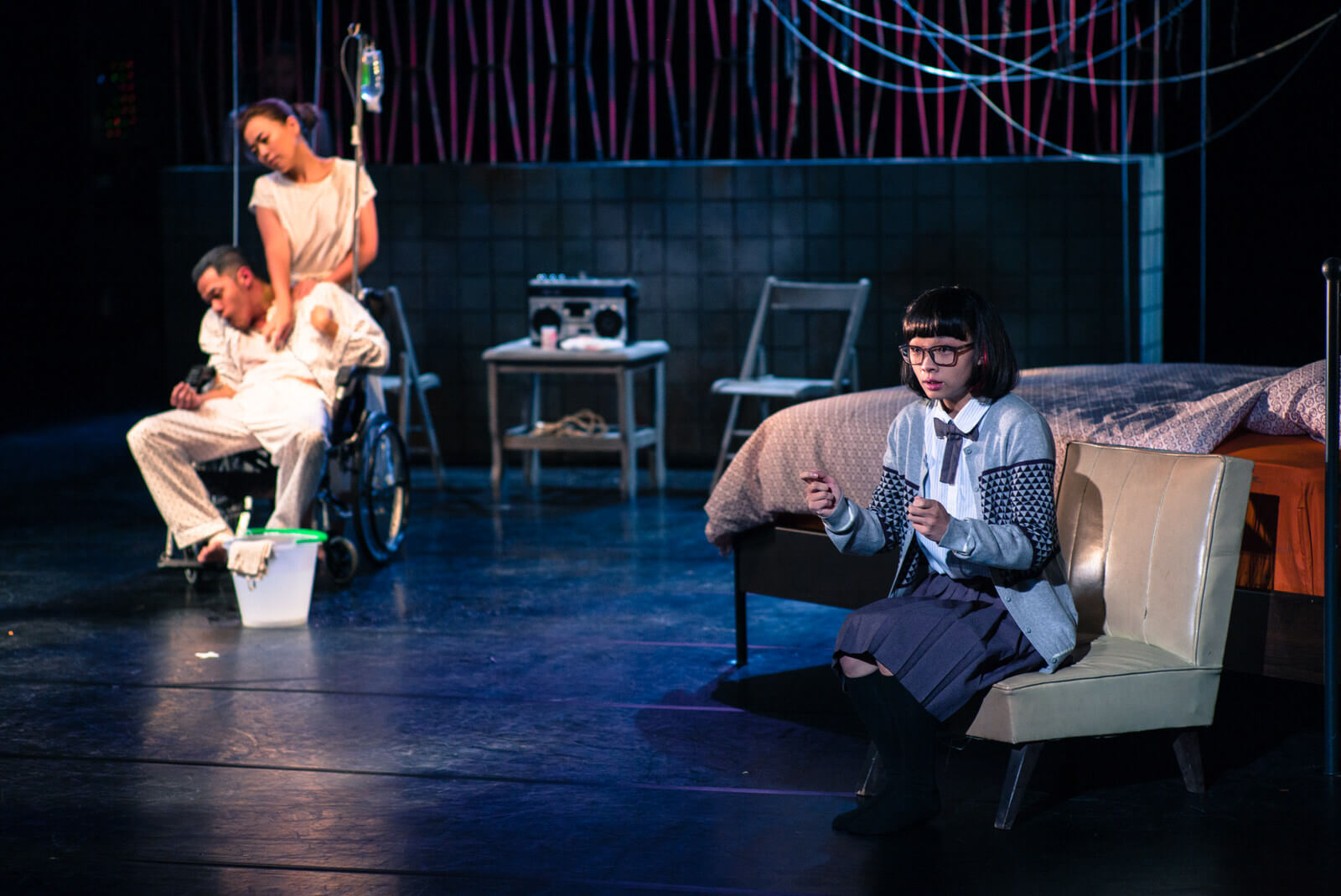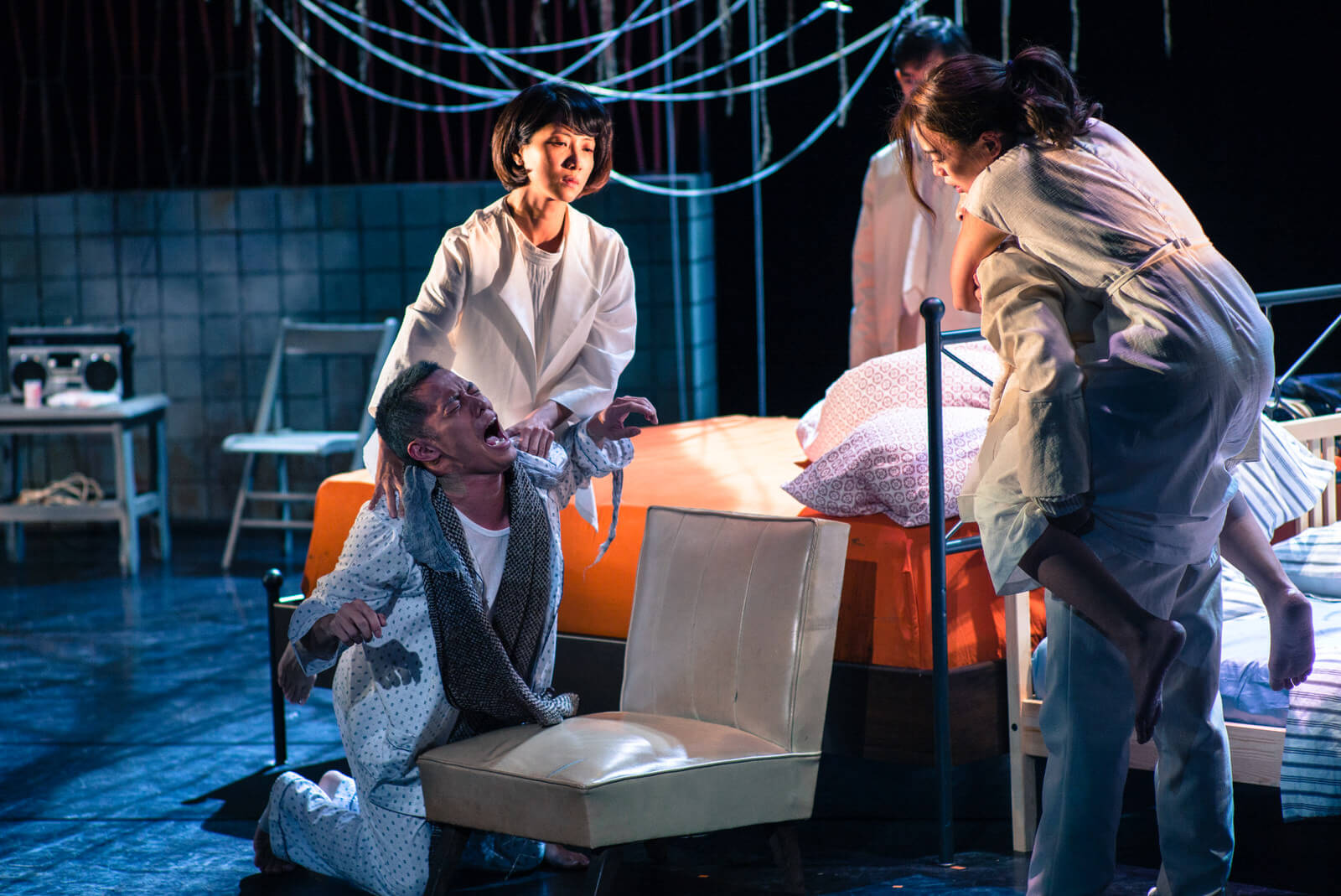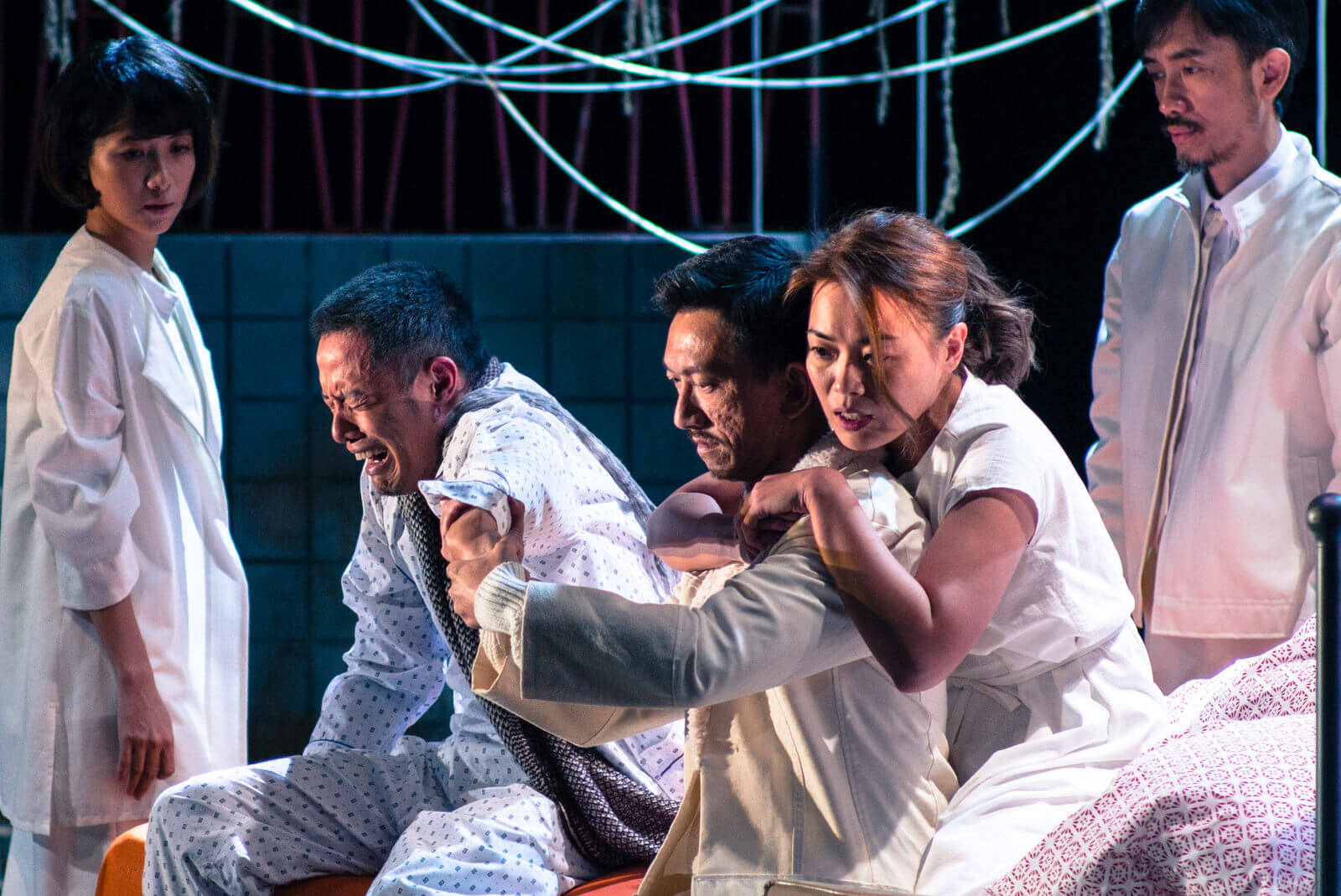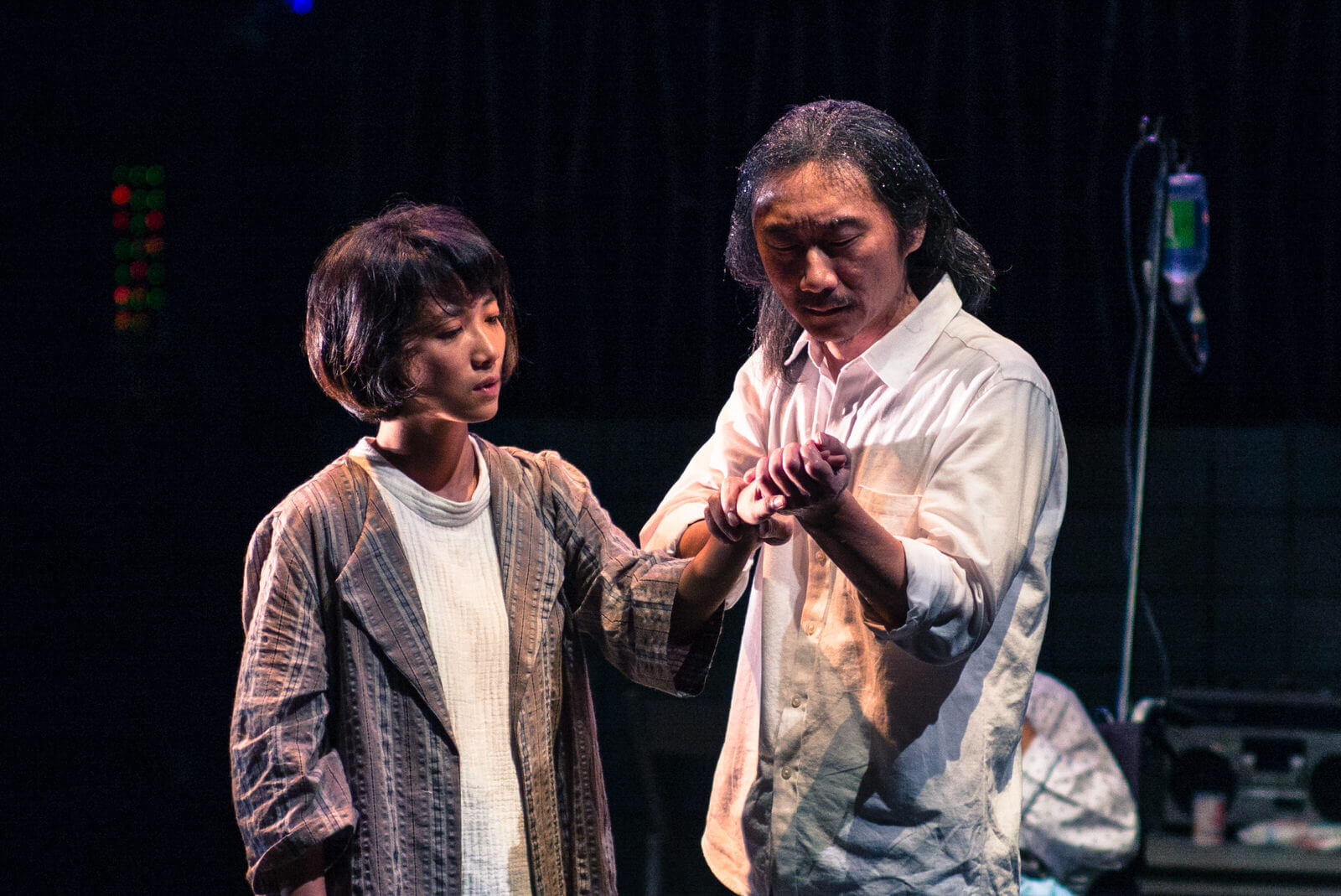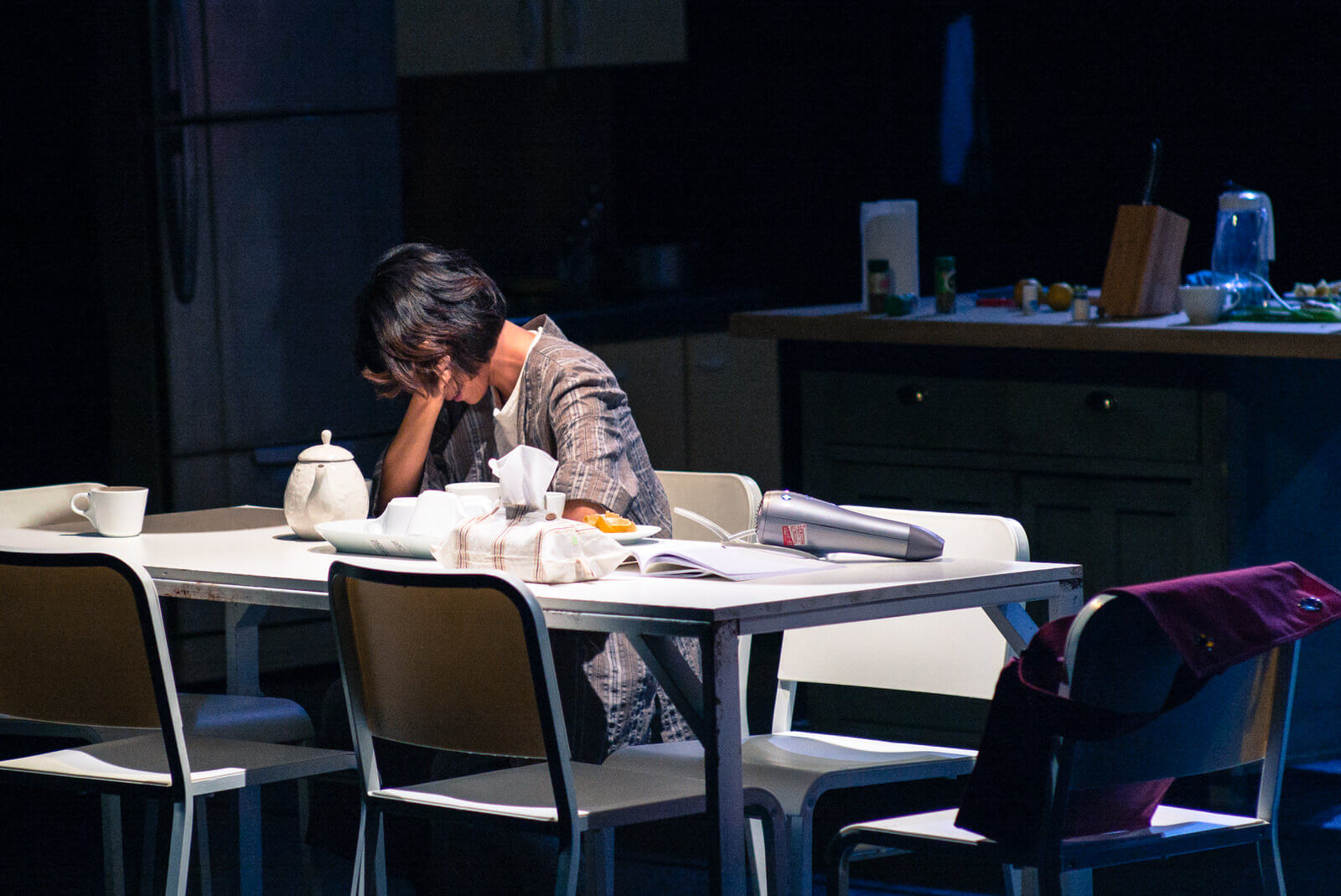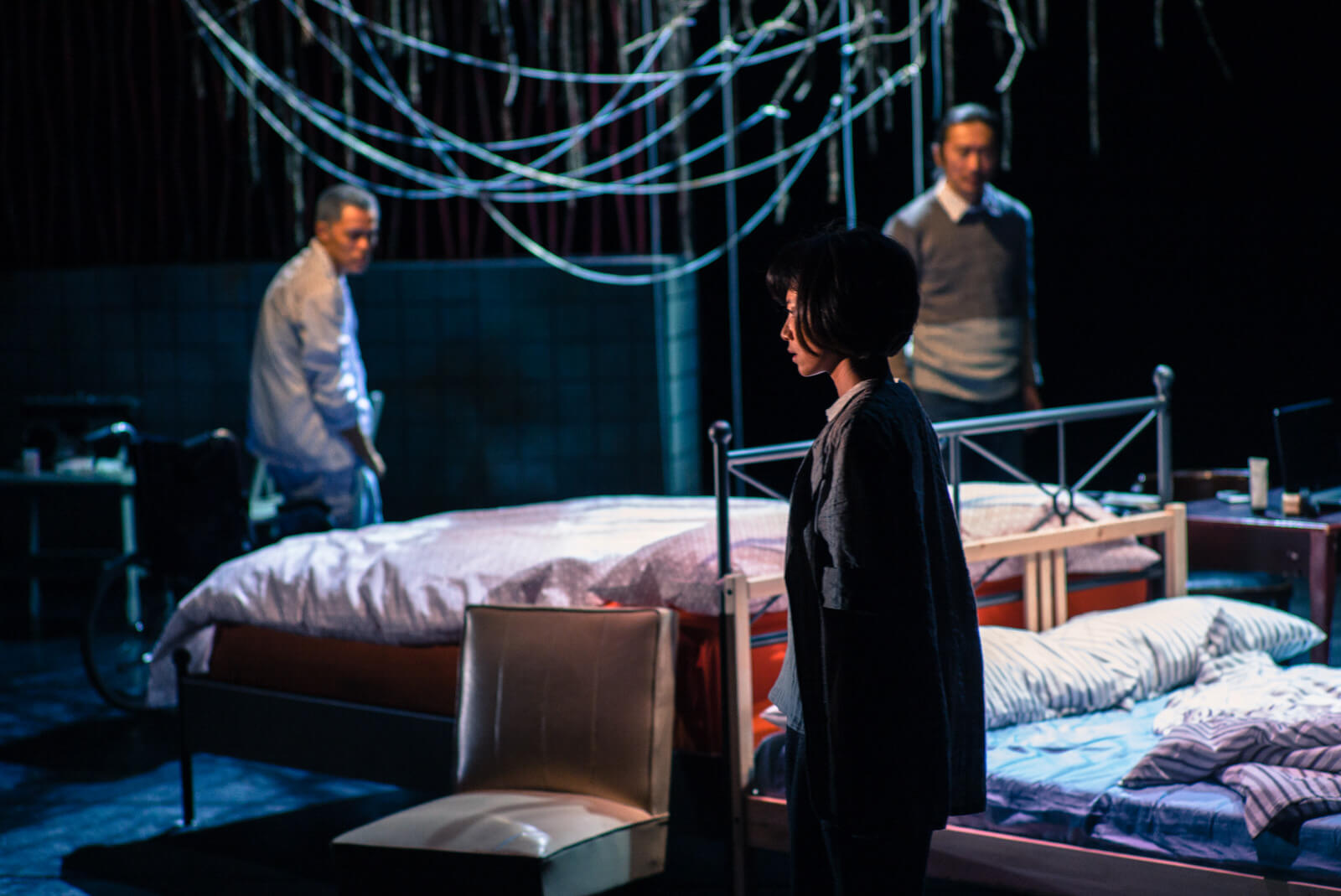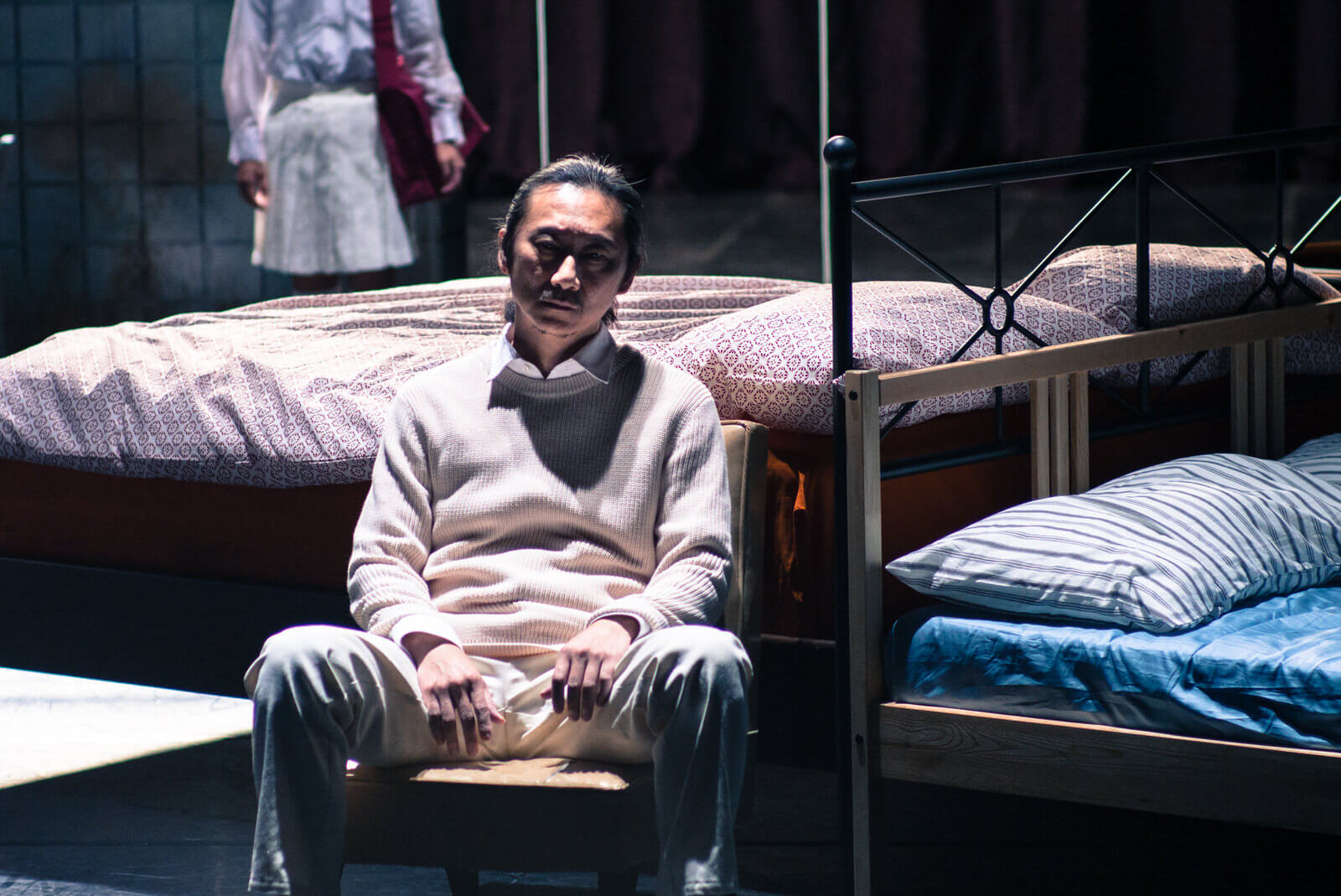暴雨將至 The Unbearable Rain
2016.12 首演於台北水源劇場
導演|符宏征
「本齣戲的團隊並不是要做一齣『好看』的戲,他們想帶給觀眾的似乎是一種近乎閱讀的觀影經驗,讓我們隨著角色呼吸、笑、感到痛苦難耐,並在累積到極點時,回到劇場的形式,以肢體表演釋放積壓的力量,這樣的力量延續到終場,將前面所累積的情緒濃縮、以更具像的暴力呈現在觀眾眼前,而當暴力再次沈潛於表面,觀眾卻因為已經看過了它的真面目而無法不感到害怕,而也許這就是《暴雨將至》要呈現的東西……。」
——藝評人 于念平
2012年,符宏征導演赴新加坡實踐劇場邀請,以新加坡現代戲劇大師郭寶崑先生1987年的劇本《傻姑娘與怪老樹》為靈感來源,重新翻演為《暴雨將至:傻姑娘與怪老樹》,轉化老樹與姑娘為家庭中的祖孫關係。2016年於臺灣首度演出的《暴雨將至》,動見体特別邀請金鐘獎編劇詹傑,透過紮實的田調背景,讓《暴雨將至》一劇貼近臺灣實際社會現況;更以符宏征導演慣常的創作方式,透過與七名演員的共同發展,投入自身生命經驗,凝聚劇本血肉。
故事描述中年時公司倒閉而與妻兒離異的大哥;長期居住中國經商,而留妻子照護老父親的二哥;移居澳洲成家立業的小妹。一個家族分枝散葉的三組家庭,在老父親失蹤被尋獲後,重聚同一個屋簷下,談老父親的狀況、談錢、談安養院。日復一日的日常對白、重複機械性的肢體,引領觀眾陷入家庭情感的桎梏,與角色一同在時間中動彈不得。
導演|符宏征
編劇|詹傑
文本素材|符宏征暨全體演員集體發展
演員|李明哲、安原良、高俊耀、徐麗雯、余佩真、王肇陽、王悅甄
舞台設計|張哲龍
燈光設計|黃祖延
音樂設計|林桂如
服裝設計|林恒正
劇照攝影|陳藝堂、鄭敬儒
————————————————————
Premiered at Taipei Wellspring Theater
Director: Fu Hong-Zheng
In 2012, Director Fu Hong Zheng directed a newly adapted story called The Impending Storm – The Silly Little Girl and the Funny Old Tree for the Theatre Practice in Singapore. The story was adapted from The Silly Little Girl and the Funny Old Tree written by the late Singaporean theatre master, Kuo Pao Kun. In this adapted version, the relationship between the two title roles is used as a metaphor of the relationship between a grandfather and a granddaughter.
The Unbearable Rain is a further evolved version of that story. It is penned by Zhan Jie, a Golden Bell Awards winner, who based the story on solid field research that adheres to social reality in Taiwan. In addition, through collaborative devising process, Fu weaved personal experiences of the cast into the story which grew to be flesh and blood to the play.
The Unbearable Rain tells a story of three siblings: the big brother separates from his wife and kids in middle age due to his business bankruptcy; the little brother resides and runs a business in China; the baby sister migrates to Australia and starts a family.
The three households stemmed from one family gather together under one roof after their elderly father had gone missing is found. They talk about the father’s condition, money, and nursing home. In the repetitive ordinary daily dialogues and machine-like physicality, audiences are lured into the cage of family affection and are stuck there with characters.
